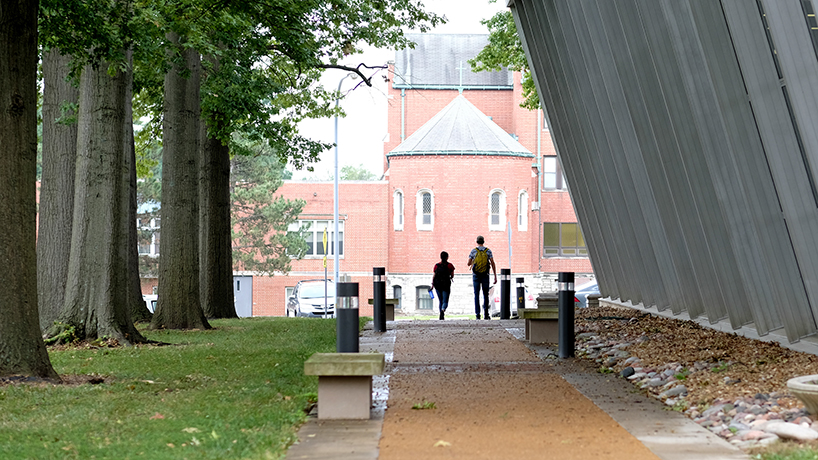
Best Health Degrees ranked the University of Missouri–St. Louis Master of Education in Counseling with an emphasis in clinical mental health counseling Top 13 on its list “25 Best Counseling Master’s Programs for 2022.” Among the 25 programs recognized, UMSL has the only program ranked in Missouri. (Photo by August Jennewein)
The University of Missouri–St. Louis Master of Education in Counseling with an emphasis in clinical mental health counseling prepares students to become multiculturally competent clinical mental health counselors serving clients in community settings, universities and businesses.
That’s increasingly critical in times marked by stress from multiple sources, say the editors of Best Health Degrees.
This month, the rankings website recognized the success of the UMSL College of Education in producing superiorly prepared counselors by rating it 13th on its list “25 Best Counseling Master’s Programs for 2022.” Among the 25 programs recognized, UMSL has the only program ranked in Missouri.
“I speak for the faculty when I say that we are very excited to get this recognition,” said Professor Susan Kashubeck-West, chair of the COE Department of Education Sciences and Professional Programs. “We do a great deal of hard work and are proud of our program, and it’s nice to see external recognition of the high-quality program we offer.”
To develop the rankings, Best Health Degrees examined accredited programs with good reputations, evaluating programs further by price and salary potential.
Kashubeck-West pointed to some of the factors that made for the UMSL program’s strong showing, including robust community partnerships with St. Louis area schools and mental health agencies and allow the placement of more than 50 students a semester in internships in the community. There’s also the program’s social justice and multicultural counseling focus, specialized training opportunities through the Counseling and Social Advocacy Center and superior faculty scholars who are active leaders directing initiatives locally and beyond.
In addition, the program aims for constant improvement in order to best serve graduates and their patients.
“We are always striving to strengthen our training of counselors to respond to today’s mental health needs,” she said. “For example, we’ve incorporated important telehealth training for all counseling students in response to the COVID-19 pandemic. We aim to be current and responsive in our training approaches and to graduate students with a solid foundation in counseling skills and the ability to serve diverse communities, especially those who have been marginalized in society.”














